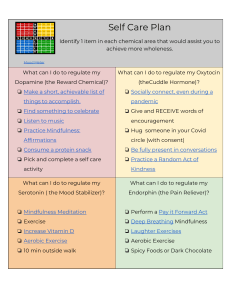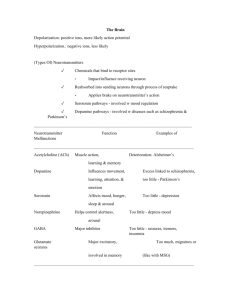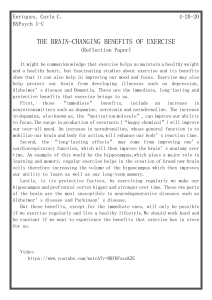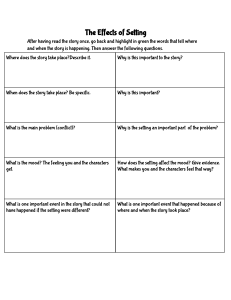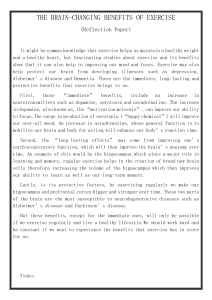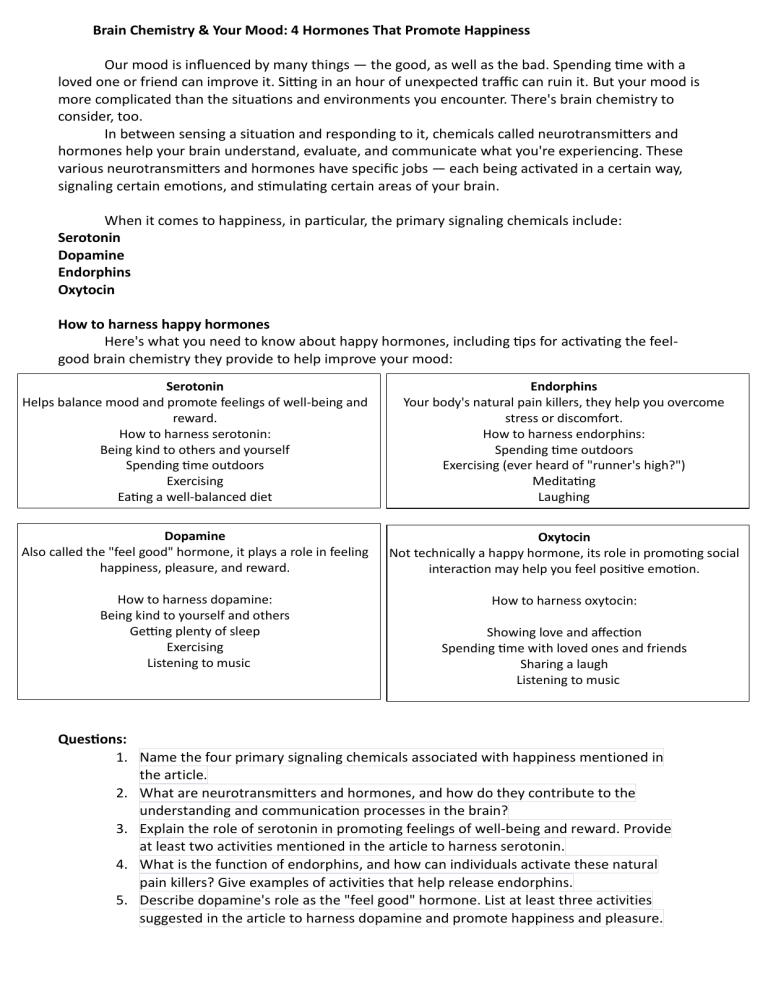
Brain Chemistry & Your Mood: 4 Hormones That Promote Happiness Our mood is influenced by many things — the good, as well as the bad. Spending time with a loved one or friend can improve it. Sitting in an hour of unexpected traffic can ruin it. But your mood is more complicated than the situations and environments you encounter. There's brain chemistry to consider, too. In between sensing a situation and responding to it, chemicals called neurotransmitters and hormones help your brain understand, evaluate, and communicate what you're experiencing. These various neurotransmitters and hormones have specific jobs — each being activated in a certain way, signaling certain emotions, and stimulating certain areas of your brain. When it comes to happiness, in particular, the primary signaling chemicals include: Serotonin Dopamine Endorphins Oxytocin How to harness happy hormones Here's what you need to know about happy hormones, including tips for activating the feelgood brain chemistry they provide to help improve your mood: Serotonin Helps balance mood and promote feelings of well-being and reward. How to harness serotonin: Being kind to others and yourself Spending time outdoors Exercising Eating a well-balanced diet Endorphins Your body's natural pain killers, they help you overcome stress or discomfort. How to harness endorphins: Spending time outdoors Exercising (ever heard of "runner's high?") Meditating Laughing Dopamine Also called the "feel good" hormone, it plays a role in feeling happiness, pleasure, and reward. Oxytocin Not technically a happy hormone, its role in promoting social interaction may help you feel positive emotion. How to harness dopamine: Being kind to yourself and others Getting plenty of sleep Exercising Listening to music How to harness oxytocin: Showing love and affection Spending time with loved ones and friends Sharing a laugh Listening to music Questions: 1. Name the four primary signaling chemicals associated with happiness mentioned in the article. 2. What are neurotransmitters and hormones, and how do they contribute to the understanding and communication processes in the brain? 3. Explain the role of serotonin in promoting feelings of well-being and reward. Provide at least two activities mentioned in the article to harness serotonin. 4. What is the function of endorphins, and how can individuals activate these natural pain killers? Give examples of activities that help release endorphins. 5. Describe dopamine's role as the "feel good" hormone. List at least three activities suggested in the article to harness dopamine and promote happiness and pleasure. Chemistry & Your Mood: 4 Hormones That Promote Happiness Your mood is like a secret recipe made by your brain. It's not just about what happens around you; there are special chemicals in your brain that play a big role. These chemicals are called neurotransmitters and hormones. They help your brain understand, think about, and talk about what's going on. When it comes to feeling happy, there are four important chemicals: 1. Serotonin: This one help make you feel balanced and good. You can get more of it by being nice to others and yourself, spending time outside, exercising, and eating healthy food. 2. Endorphins: These are like your body's superheroes. They help you when you're stressed or uncomfortable. Spending time outdoors, exercising (ever heard of "runner's high?"), meditating, and laughing can bring more of them. 3. Dopamine: This is the "feel good" chemical. It makes you feel happy and satisfied. Being kind, getting enough sleep, exercising, and listening to music can help you get more dopamine. 4. Oxytocin: This one is not exactly a happy chemical, but it helps you feel good by promoting social connections. You can get more oxytocin by showing love, spending time with loved ones, sharing a laugh, and listening to music. So, when you want to feel happier, remember these tips. Be kind, spend time outside, exercise, eat well, laugh, get enough sleep, and connect with loved ones. Your brain will thank you! Chemistry & Your Mood: 4 Hormones That Promote Happiness Your mood is like a secret recipe made by your brain. It's not just about what happens around you; there are special chemicals in your brain that play a big role. These chemicals are called neurotransmitters and hormones. They help your brain understand, think about, and talk about what's going on. When it comes to feeling happy, there are four important chemicals: 1. Serotonin: This one help make you feel balanced and good. You can get more of it by being nice to others and yourself, spending time outside, exercising, and eating healthy food. 2. Endorphins: These are like your body's superheroes. They help you when you're stressed or uncomfortable. Spending time outdoors, exercising (ever heard of "runner's high?"), meditating, and laughing can bring more of them. 3. Dopamine: This is the "feel good" chemical. It makes you feel happy and satisfied. Being kind, getting enough sleep, exercising, and listening to music can help you get more dopamine. 4. Oxytocin: This one is not exactly a happy chemical, but it helps you feel good by promoting social connections. You can get more oxytocin by showing love, spending time with loved ones, sharing a laugh, and listening to music. So, when you want to feel happier, remember these tips. Be kind, spend time outside, exercise, eat well, laugh, get enough sleep, and connect with loved ones. Your brain will thank you!
